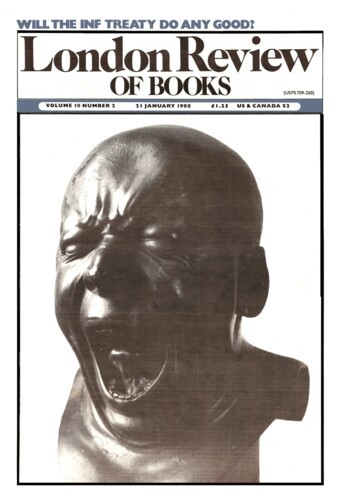Ceremonies
Rodney Hilton, 21 January 1988
This is a collection of fascinating studies, ranging from Babylon to 20th-century Ghana, from China to Madagascar. David Cannadine, in his Introduction, says that the topics covered are mainly pre-modern and therefore outside the scope of most professional historians. In their Acknowledgments, however, the two editors refer to the ‘rites of passage’ of contemporary heads of state, ‘from Reagan’s inaugural to Andropov’s funeral’, and admit that rituals continue to play a part in modern political systems. Indeed, in contemporary Britain we are not spared the rituals of royalty projected by the media. But are these for us (or some of us) simply entertainment? Averil Cameron, in her excellent contribution on Byzantium, asks: ‘Was there a Byzantine Princess Diana?’ She comments on the fervour accompanying British royal occasions and suggests that, as far as the mass of the Byzantine population was concerned, little warmth or affection was shown for the emperors. The editors are right: rituals are still perceived, at any rate by those who organise them, as playing important social and political roles. Professional historians of the modern period, as well as others, would do well to take ritual seriously. They may discover that its role hasn’t changed as much as one would think it had, despite the disappearance, at any rate in the industrialised world, of ‘traditional’ societies.

